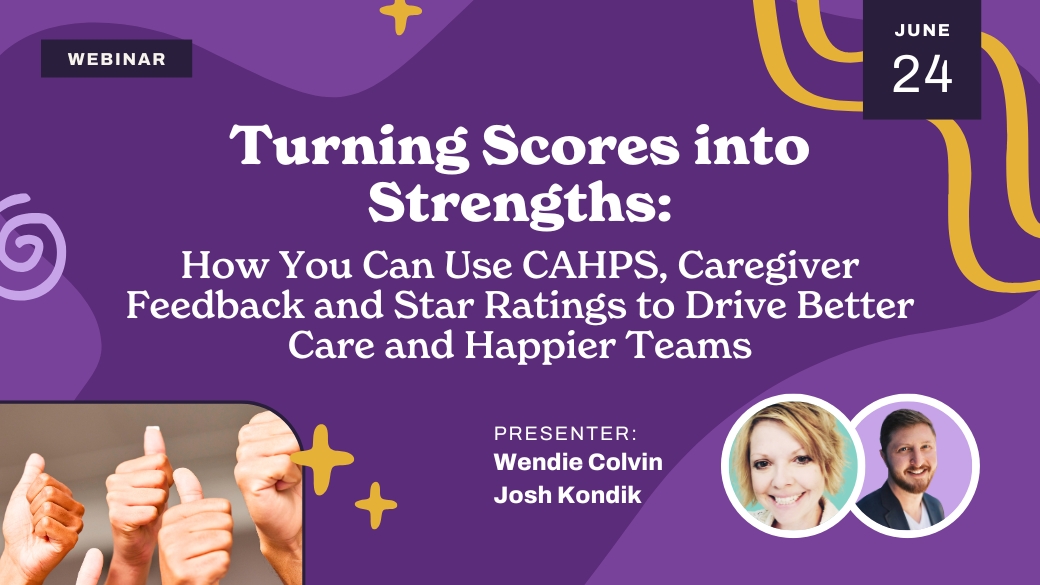How the Most Successful Home Care Agencies Handle Economic Downturns

We talked to a leading home care growth expert who’s helped agencies navigate through five recessions. Here’s what he says you need to do.
If you had a nickel for every time you heard the phrases “in these uncertain times” over the last few months, you could probably quit your job now and enjoy a wealthy retirement.
The fact is, these are uncertain times and while the circumstances are still evolving, true stability seems a long ways away.
One of the many plot twists of the last few months is the beginning of a new economic recession. While economic experts have determined that the downturn began before the mass outbreak of COVID-19 in the United States, the pandemic accelerated it and ushered in a series of economic hardships.
Not all industries or companies are affected equally by a recession; it depends on a wide range of factors like the specific product/service, their target market, and what kinds of alternatives exist.
How does home care fare in an economic recession, and what do the most successful home care agencies do to adapt in a recession?
Stephen Tweed, founder of the Home Care CEO forum and CEO of Leading Home Care, has spent more than five decades consulting with home care agencies to help them grow. In that time, he’s watched five different economic downturns—not counting the current recession—and helped home care agencies navigate them.
Stephen’s primary expertise has been consulting at a deep level with the largest and most successful companies; in addition to that, his many years in home care have let him rub shoulders with thousands of home care agency owners and other leaders.
Here’s his take on what you can expect from the continued economic challenges and what the strongest companies will do to get through it.
A QUICK NOTE: most of the content below comes from a recent interview on our new podcast for home care leaders. To listen to the full episode or read the transcript, click here. If you subscribe to the podcast, we’ll send you weekly emails when we interview other home care leaders.
How have past economic downturns affected home care?
In a nutshell: “Major economic upheaval has not had a major impact on the home care industry,” says Stephen.
Does that mean home care is recession-proof, as some have claimed? Not necessarily.
If home care does have a vulnerability to recessions, however, it can take one of two forms.
The first is that agencies whose clientele is primarily upper-middle class private-pay individuals may take a hit when the stock market fluctuates. “What we’ve seen,” says Stephen, “is that the buying habits of some seniors and their family are influenced by things like the stock market.”
His observation is that individuals with a higher net worth more closely align their buying patterns to the strength of their stock portfolio. “When the stock market is up, they feel like they have resources and they’re comfortably spending,” he explained to our team. “If their portfolio goes down, they’re a little more cautious about spending, even when they’re not tapping their investment portfolio to write that check.”
Because the stock market often begins to recover more quickly than some other factors (such as general unemployment), this negative impact may be short-lived. Stephen notes that with stock market having made strong rallies in recent weeks, the worst impact of the stock-market effect might already have passed.
The second way that economic downturns, particularly this one, may affect home care is a rise in acquisitions. Any recession, but especially one during the stress of COVID, creates pressure that takes an emotional toll on home care owners—particularly owners of small agencies with less stability and fewer established processes.
Many of these owners may decide to exit the business and clear the path for easy acquisitions by larger companies with stronger infrastructures and support systems in place.
How should home care agencies navigate an economic downturn?
What do the agencies who come out of recessions on top do better than the rest? Stephen says it comes down to six points.
Most of the ways them are steps that are always useful but take on a new importance in times when business risk is greater.
1. Have a huge vision.
Vision pulls a company through in tough times. The right vision can not only guide leaders to think more long-term, but also inspire other employees to dig deeper in their work to help grow the company.
“These leaders [who come out of recessions better than before] see themselves running a bigger company,” says Stephen, and adopt a mindset that drives them to make decisions with the end goal in mind.
2. Understand that culture eats strategy for breakfast.
Culture is influenced by the leadership style of the CEO, the core values that guide the thoughts and actions of the company, the behavior expected in the company, and the behavior permitted in the company.
As the adage goes: the behavior we permit, we promote.
In a recession, culture functions as a series of intangible but highly impactful processes that determine how the company’s employees will handle setbacks and approach problem-solving. You can read our guide to culture here.
3. Become a systems thinker.
Business leaders need to examine their business, look at the actions that are repeated over and over again, and figure out how to put systems in place to ensure that they happen consistently and efficiently. In a home care setting, this includes things like:
Home care leaders need to understand, document, and improve the systems within their companies.
4. Attract the best talent, both at the caregiver level and the administrative level.
Attracting the right talent is a huge topic that’s hit on often in home care, but in a recession the elements of stability and vision become more important.
Employees want to know that you can
a) look after them during uncertain times,
b) help them emerge from the recession better off than before, and
c) empower them to accomplish something meaningful
These are easier said than done, but they need to be at the forefront of every home care agency owner’s mind.
5. Tell a compelling story.
Storytelling is a unifying principle that combines the ideas of vision and attracting talent. Home care leaders need a compelling story that can attract clients and caregivers as well as make their vision more relatable/digestible.
This might include why you got into home care and/or why you stay in home care, what your company’s mission is, or how your company is influencing individual lives. There are many approaches you can take, but being able to tell a strong story will make your other efforts to inspire people more effective.
6. Measure everything.
Stephen echoes a common mantra: what gets measured gets managed. What gets rewarded gets repeated.
This is something we always harp on at Activated Insights, but again, it takes on extra importance during a recession. While it’s tempting to get by on gut and experience, measurement often what makes the difference between barely getting by and thriving.
To hammer this point in, let’s look at a stat from the annual Home Care Benchmarking Study: from the 800+ agencies we surveyed this year, the agencies who reported tracking every sales inquiry made an average of $470,000 more in annual revenue than those that don’t track every inquiry.
(Likewise, agencies that have a system to measure client satisfaction earn an average of $583,000 more in revenue each year than agencies without a system to track client satisfaction.)
Stephen recommends using the Benchmarking Study as a simple way to get started. Since it contains industry benchmarks on everything from categorized expenses to sales processes and also gives instructions on how to calculate the metrics, it’s an ideal tool to see how your agency compares to other agencies throughout the industry.
Seeing Disneyworld in a Swamp
The story is told that when Walt Disney traveled to Florida to decide where to begin building Disneyworld, he simply flew a plane over what was then a seemingly random tract of swamp and chose it as the site.
Disney passed away before Disneyworld’s construction finished; the story continues that on opening day, Walt’s brother Roy Disney stood in front of the gate talking to guests. One guest told him, “This is spectacular. It’s too bad Walt never got to see it!”
Roy replied, “Oh, Walt did see it. That’s why it’s here.”
Whatever stage of growth your agency is at, there’s still swampy ground ahead of you ready to be turned into something spectacular.
At the end of the day, your vision (or lack thereof) as leader is the greatest determinant of the way your agency will navigate these tough times.
If this was useful to you, don’t forget to check out the podcast episode and subscribe to podcast updates so you’ll get notified when we publish a new episode.




